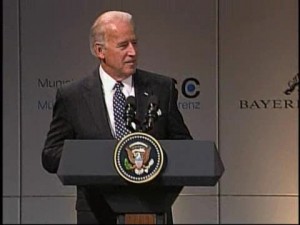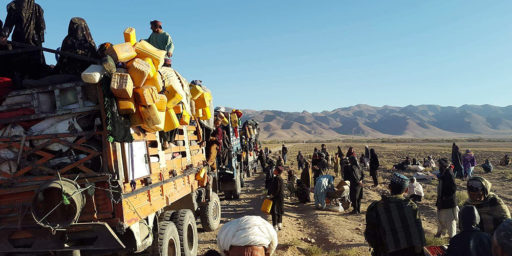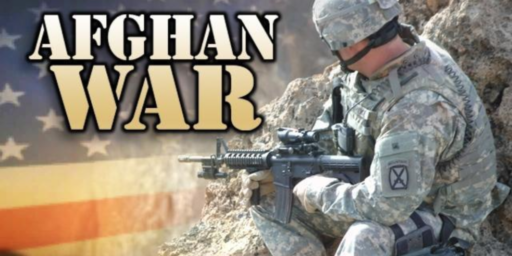The New Strategy for Afghanistan
 The Obama Administration has outlined a new strategy for Afghanistan:
The Obama Administration has outlined a new strategy for Afghanistan:
The Obama administration today today outlined a new campaign strategy for the war in Afghanistan, scaling back the ambitions of George Bush in a shift which senior officials and diplomats described as a “new realism”
Richard Holbrooke, Barack Obama’s new envoy for Afghanistan, General James Jones, the new White House national security adviser, and General David Petraeus, the new commander of the Afghan campaign, all stressed that the US president’s policy on the Taliban and al-Qaida would be governed by “attainable goals” matched by “adequate resources”.
In the first major foreign policy speech from the new administration, the vice-president, Joe Biden, told a security conference in Munich that the strategic review on Afghanistan under way in Washington would “make sure that our goals are clear and achievable”.
Notable by its absence in any of the speeches from the American team was any mention of building democracy in Afghanistan. Instead, the emphasis was on creating sustainable security to try to prevent the Taliban from extending their grip on the country.
“Obama’s objectives will be much more moderate,” said a senior European policy-maker involved in discussions with the Obama team. A senior Nato official said Washington’s emphasis on Afghanistan was shifting to “being much more realistic”, adding: “It doesn’t need to be a democracy, just secure.”
“The new policy will be not just winning hearts and minds, but winning hearts, minds, and stomachs,” said another senior diplomat working in Kabul. “It’s realistic. Realism is good.”
I hope they flesh out the concept of “sustainable security” for Afghanistan since it’s unclear to me what that means. Afghanistan is a country approximately the size of Texas and a population 25% larger than that of Iraq that includes some of the most rugged terrain in the world. It’s overwhelmingly rural, undeveloped. Parts of some of its provinces can’t be reached by road from their own provincial capitals.
As I see it there are two fundamentally different approaches to achieving sustainable security for Afghanistan if by that we mean a country that’s willing and able to protect its own borders and prevent Al Qaeda or terrorist groups like Al Qaeda from setting up shop there. Either we can maintain a force in Afghanistan large enough to do that or we can foster the institutions in Afghanistan that would enable the Afghans to do that themselves.
Fostering tribal institutions won’t cut it. One or more tribal leaders who are sympathetic to Al Qaeda or a successor to Al Qaeda would be enough. Sustainable security in Afghanistan requires a strong central government, something that’s never existed in the country. Unless we consider a more or less permanent occupation of Afghanistan sustainable, of course.
None of the alternatives in Afghanistan are particularly palatable. We’re either in the occupation business or the nation-building business or both for the foreseeable future. Or we take the risk that things will return to the pre-2002 conditions there.





And presumably friendly to the USA.
Isn’t that what we said about the Shah of Iran? And what do the Leftists think of that phase of our Middle Eastern history now? And why do any of them think this will be any different?
What will they say when the “Shah of Afghanistan” does something they don’t like, i.e. abuse someone’s rights?
If there’s no democracy, then there’s no standardization, and there’s no accountability.
Democracy is, by and large, a mindset and I’m not sure that the people of Afghanistan have that type of mindset.